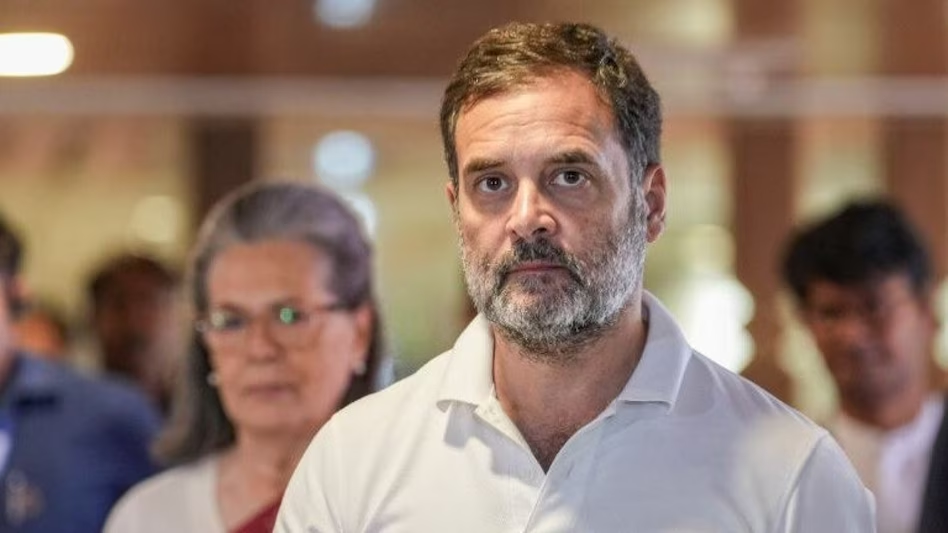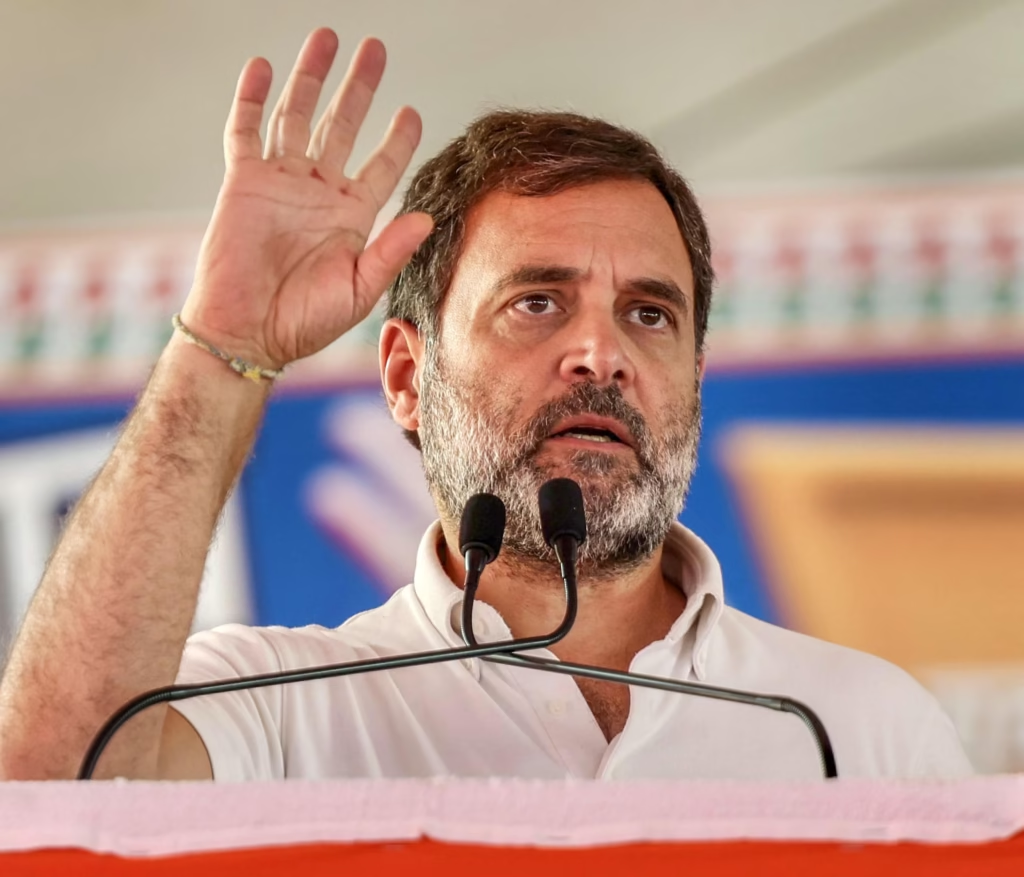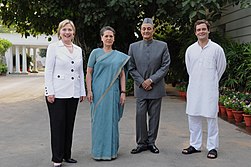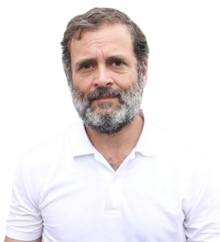
Rahul Gandhi’s Political Positions on National Security
Introduction
Rahul Gandhi, a prominent leader of the Indian National Congress (INC), has consistently voiced his opinions on national security, military modernization, internal security threats, and foreign policy. His views often contrast with the policies of the ruling Bharatiya Janata Party (BJP), particularly those of Prime Minister Narendra Modi. This document explores Rahul Gandhi’s political positions on national security, highlighting his criticisms, proposals, and policy perspectives in a detailed manner.
1. Views on Military and Defense Modernization
Rahul Gandhi has stressed the importance of strengthening India’s defense capabilities while also advocating for transparency and accountability in defense procurement. Some key aspects of his stance include:
- Criticism of the Rafale Deal: One of his most vocal campaigns was against the Modi government’s Rafale fighter jet deal with France. Gandhi accused the government of irregularities and crony capitalism in awarding the contract, arguing that it compromised transparency in defense procurement. He repeatedly raised the issue in Parliament and public rallies, calling for an independent investigation into the pricing and allocation of the defense contract.
- Advocacy for Indigenous Defense Production: He has called for boosting India’s domestic defense industry to reduce dependence on foreign imports, emphasizing the need for self-reliance in defense manufacturing. He has proposed increasing the defense budget for indigenous projects, developing high-tech weaponry within India, and providing incentives to domestic manufacturers.
- Support for Soldiers’ Welfare: Gandhi has criticized delays in salary disbursements and lack of adequate facilities for soldiers, advocating for improved conditions for personnel in the armed forces. He has also spoken in favor of better post-retirement benefits, ensuring timely medical care for veterans, and enhancing housing facilities for soldiers and their families.
2. Internal Security and Terrorism
Rahul Gandhi has spoken about internal security challenges, including terrorism, communal violence, and Naxal insurgency. His positions include:
- Combating Terrorism through Intelligence and Cooperation: He has stated that fighting terrorism requires strong intelligence networks and better coordination between state and central agencies. He has advocated for enhanced counter-terrorism measures that focus on preemptive action and intelligence sharing with global allies.
- Criticism of the 2019 Pulwama Attack Handling: He questioned intelligence failures leading up to the Pulwama attack and the government’s response, calling for more accountability in national security matters. He has suggested that better security protocols, including monitoring terror financing and cross-border movement, need to be in place to prevent future attacks.
- Dealing with Communal Violence: He has warned against divisive politics, arguing that communal disharmony weakens internal security. He has called for strict enforcement of anti-hate laws, proactive policing to curb riots, and better education initiatives to foster national unity.
- Approach Toward Naxal Insurgency: Gandhi has advocated for a two-pronged approach to dealing with Naxalism—using military operations where necessary but also addressing the socio-economic issues that fuel the insurgency, such as poverty, lack of employment, and inadequate access to education and healthcare.
3. Kashmir Policy and Article 370
Rahul Gandhi and the Congress Party opposed the Modi government’s decision to revoke Article 370, which granted special status to Jammu and Kashmir. His stance includes:
- Restoration of Statehood: He has consistently advocated for restoring full statehood to Jammu and Kashmir, arguing that revocation without consultation harmed the democratic process.
- Criticism of Government Actions: He accused the Modi government of suppressing democracy by detaining political leaders and restricting communication in the region post-Article 370 abrogation. He believes such actions alienate local communities and foster resentment.
- Dialogue-Based Solution: He has emphasized the need for engaging with the people of Kashmir and addressing their grievances through dialogue rather than force. He has suggested confidence-building measures, economic investments, and educational reforms to promote peace in the region.
- Security Concerns Post-Article 370: Gandhi has raised concerns over the increase in militant activities post the revocation of Article 370, arguing that the government’s move has not yielded the promised results in terms of security and economic development.
4. Border Security and Relations with China
Rahul Gandhi has been critical of the Modi government’s handling of border security, particularly regarding China. His views include:
- Ladakh and Galwan Valley Incident: He accused the government of concealing facts about Chinese incursions in eastern Ladakh, stating that India’s territorial integrity was compromised. He has demanded greater transparency on the status of border disputes and military engagements.
- Call for Transparency in Sino-Indian Relations: He has repeatedly demanded a clear government stance on border negotiations with China. He has urged the Indian government to ensure strong diplomatic pressure while maintaining a robust military presence in sensitive regions.
- Strengthening Border Infrastructure: He has acknowledged the need for improved infrastructure along India’s borders to ensure military readiness. He has also suggested increasing defense spending for border surveillance and enhancing the quality of logistics support for troops stationed in high-altitude areas.
5. Relations with Pakistan and National Security Strategy
Rahul Gandhi has maintained a cautious approach toward Pakistan, advocating for a balance between diplomacy and security measures. His positions include:
- Diplomatic Engagement Alongside Military Preparedness: He has argued that dialogue should remain an option while ensuring a robust defense strategy. He believes in a multi-dimensional approach that includes international diplomatic pressure, counter-terrorism operations, and economic sanctions where necessary.
- Surgical Strikes Acknowledgment: Unlike some opposition members, he acknowledged the success of the 2016 surgical strikes but criticized the BJP for allegedly using them for political gain. He stated that the strikes were a military decision rather than a political achievement and should not be used for election campaigns.
- Criticism of Government Handling of Cross-Border Attacks: He has questioned the Modi administration’s responses to terror attacks originating from Pakistan, urging for a comprehensive counter-terrorism policy. He has stressed the importance of international partnerships in countering terrorism and strengthening regional security frameworks.
6. Cybersecurity and Technological Advancements in Security
With the rise of cyber threats, Rahul Gandhi has spoken about the importance of cybersecurity in national security policy. His views include:
- Strengthening Cybersecurity Frameworks: He has called for increased investment in cybersecurity to protect sensitive government and military data from cyber-attacks.
- Regulation of Digital Warfare: He has emphasized the need to regulate the spread of disinformation, particularly foreign propaganda campaigns aimed at destabilizing India.
- Developing AI and Surveillance Technologies: He supports integrating artificial intelligence (AI) into defense mechanisms to enhance national security and intelligence operations.
SOURCES : Wikipedia – Rahul Gandhi: This page provides an overview of Rahul Gandhi’s political career, including his positions on national security. Wikipedia
Indian National Congress Official Website: This source details Rahul Gandhi’s roles and contributions within the party, offering insights into his political stance. Indian National Congress
The Indian Express: An article discussing Rahul Gandhi’s remarks on China’s rise and its implications for India’s employment and border security. The Indian Express
Reuters: A profile piece on Rahul Gandhi, providing context on his political journey and challenges faced. Reuters
Financial Times: Coverage of Rahul Gandhi’s visit to the U.S., highlighting his efforts to present his vision for India’s future. Financial Times
The Guardian: An investigation into border security protocols, indirectly shedding light on national security issues relevant to Rahul Gandhi’s critiques. The Guardian
Associated Press News: Reporting on opposition protests led by Rahul Gandhi concerning the treatment of Indian deportees, reflecting his stance on national dignity and security. AP News
Economic Times: An article detailing Rahul Gandhi’s leadership team, providing insights into his strategic approach to national issues. The Economic Times
Stanford University’s Freeman Spogli Institute for International Studies: Coverage of Rahul Gandhi’s address on India’s democracy and its relationship with the U.S., offering perspectives on his foreign policy views. Freeman Spogli Institute
University of California, Santa Cruz News: An article on Rahul Gandhi’s visit to Silicon Valley, where he discussed governance and corruption, indirectly touching upon national security concerns. news.ucsc.edu




